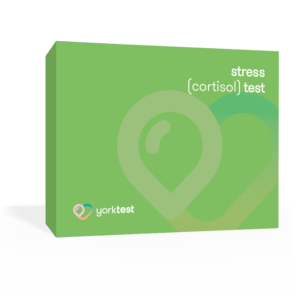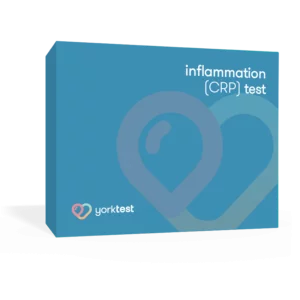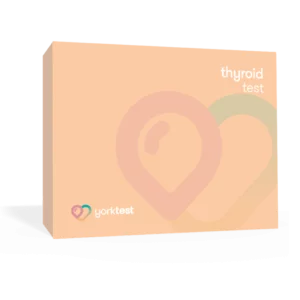What is a lupin allergy?
A lupin allergy is an allergy to a bean called lupin (also spelled lupine). Lupin beans, also called lupins, are the seeds of the lupinus plant, which is a popular garden plant with tall, colourful flower spikes. Other names for lupin include:
- Lupini
- Termes
- Altramuz
- Tarwi
- Termos
Lupin beans are a traditional food in Mediterranean cuisine, where they are eaten whole as a snack, added to salads or enjoyed as antipasto. Lupin beans are also crushed and used to make lupin flour, which can be used in baked goods such as pastries, pies, pancakes and in pasta.
Until fairly recently, lupin has been less commonly-consumed in the UK. However, as lupin flour is naturally gluten-free it is increasingly being used as a substitute for wheat and other gluten-containing cereals in gluten-free products. The rise of gluten allergies and intolerances in the UK is therefore leading more people to consume more lupin, because it’s often found in these gluten-free products.
Benefits of Lupin
For those without a lupine allergy, lupin beans do present positives. They’re high in antioxidants, dietary fibre (30%), protein and starch. As we’ve mentioned, they’re also gluten free. Added to this, legumes are low in fat (4-7%) in general, and contain no cholesterol, and lupin beans are no exception. Products containing lupin flour have become an increasingly popular choice for those on Keto diets. Lupin beans can be used to make lupin protein because their protein content is high (up to 44%). Lupin protein can be used as an alternative to soya protein in vegan or plant-based products (like vegetarian meat substitutes). Therefore, those on vegan or plant-based diets may sometimes be unknowingly consuming lupin.
Although lupin beans may present some benefits (e.g. eating them as part of a vegetarian diet can help to guard against heart disease, high blood pressure, strokes and diabetes), these benefits will be far outweighed by the drawbacks if the consumer has a lupin allergy. The only option for those who do have an allergy to lupin is to avoid it completely.
Which foods contain lupin/what should you avoid?
Lupin can be found in a wide range of food products, from baked goods such as bread, pastries and pies, to pasta or noodles and meat-based products like burgers and sausages. Foods that are gluten-free, soy-free or free from genetically-modified ingredients may also contain lupin.
If you want to follow a gluten-free or soy-free diet and you have a lupin allergy, you should be very careful when selecting gluten-free and soy-free foods.
In the UK, lupin is one of the 14 major food allergens. This means that food manufacturers that make pre-packaged food are legally required to highlight lupin on the label if a food product contains it. Lupin might appear on food packaging under the following names: lupin, lupine, lupin seeds, lupin beans or lupin flour.
Lupin Allergy Food List
So, to avoid lupin, you need to become an avid food label reader and check:
- Bread
- Rolls
- Biscuits and cookies
- Cakes
- Waffles
- Battered, coated and deep-fried vegetables (e.g. onion rings, mushrooms)
- Chocolate drinks
- Crepes
- Free-from products (e.g. ice creams)
- Gluten-free products (e.g. pasta, sausages)
- Some vegan products
- Pancakes
- Pastries
- Pies and pastry cases
- Pizzas
- Products containing breadcrumbs
- Protein shakes
- Vegetarian meat substitutes
- Sauces
- Stews
- Hummus
- Some beers
- Processed meat-based products like sausages and burgers
A common misconception appears to be that chickpeas are in some way the same as lupin beans. This isn’t correct, as they are two entirely different legumes, but it is true that products that contain chickpeas could contain lupin as well. Once again, it’s simply a case of reading the labels to see what the food you’re eating contains.
Are Lupin Flowers a Problem?
The lupin garden flower could give you a skin reaction if you have a lupin allergy. There’s at least one known case of someone having a major skin reaction after coming into contact with the lupin plant, so it may be best to leave this flower out of your garden if you’re allergic.
Lupin allergy symptoms/what happens if left untreated?
Although it’s estimated that less than 1% of the population have experienced an immediate reaction to eating lupin, reactions aren’t always instantaneous. Allergic reactions to lupin cause similar symptoms to those that are seen with other food allergens.
Mild symptoms may include an itchy skin rash (hives or urticaria) on the body, a runny nose, sneezing or watery eyes or a tingling or itchy feeling in the mouth. As a legume, lupin is also prone to causing gas or bloating, because the body struggles to create the enzyme that’s needed to break down the carbohydrates they contain.
More serious symptoms are uncommon, but are a possibility for some people. These may include:
- Swelling of the face, lips, tongue, throat or mouth
- Abdominal pain, nausea and vomiting
- Breathing difficulties, coughing and wheezing, especially if the person has asthma
- Cardiovascular issues (like low blood pressure)
- Anaphylaxis (which can be fatal)
Anaphylaxis usually develops suddenly and gets worse very quickly. The symptoms of anaphylaxis include difficulty breathing, feeling faint and dizzy, a swollen tongue and issues with speaking or swallowing, a tight chest, fast heartbeat, clammy skin, confusion and anxiety, as well as collapsing and losing consciousness. The symptoms of anaphylaxis are often categorised according to an ABC system:
- Airway – e.g. swelling of the throat, tongue or upper airway
- Breathing – e.g. wheezing, or noisy/difficult breathing
- Circulation – e.g. dizziness, clammy skin, feeling faint or confused, sudden-onset sleepiness, tiredness, or losing consciousness
If a person experiences anaphylaxis, it is a medical emergency and an ambulance must be called.


What’s the link between peanut and lupin allergy?
People who are allergic to peanuts may also react to lupin. Indeed, people with peanut allergies are most at risk of a lupin allergy.
Lupin is a legume that belongs to the same plant family as peanuts, and a number of studies have demonstrated a link – or a “cross reactivity†– between lupin allergy and peanut allergy. One study found that the principal allergen (a protein) that was present in lupin flour was very similar to one of the allergens found in peanuts.
While a person with a lupin allergy will not necessarily have a peanut allergy and those with a peanut allergy will not necessarily be allergic to lupin, those with severe allergies to either lupin or peanuts should be aware of the potential for a reaction.
Because lupin flour is used in baked goods and pasta, especially gluten-free products, those with a peanut allergy who are also avoiding gluten need to be careful they are not inadvertently eating products which put them at risk of a potentially life-threatening allergic reaction.
How to treat/manage lupin allergy
A lupin allergy is best managed by checking all of the ingredients in pre-packaged foods, asking about the ingredients in dishes when eating out at restaurants, and avoiding foods and drinks that contain lupin flour or lupin beans. Lupin flour is more widely-used in Europe than in the UK (e.g. bread from French markets often contains lupin), so be mindful when you’re travelling. If you suffer from asthma (especially if it’s uncontrolled) then you should be extra careful, as any allergic reaction could be worse for you.
If a mild reaction occurs, taking antihistamines may help to reduce symptoms.
If an anaphylactic reaction occurs, an adrenaline auto-injector (AAI) should be administered and 999 called.













